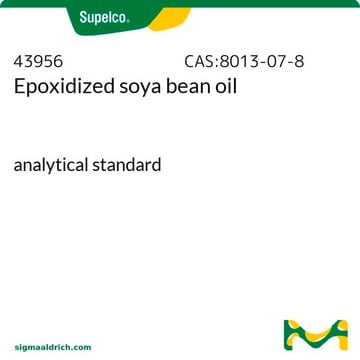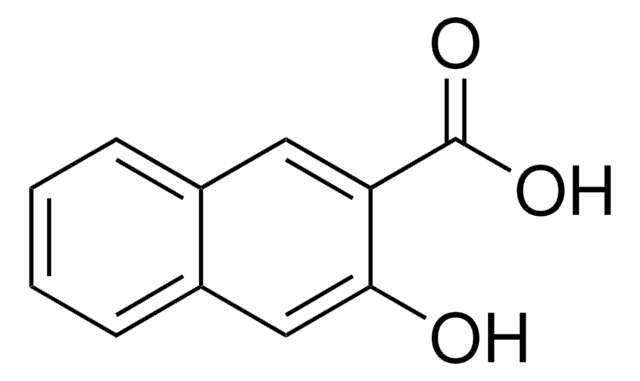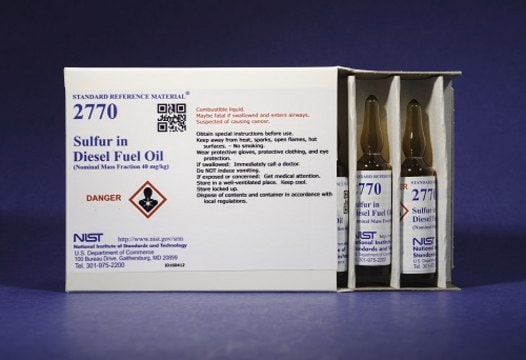51491
Dibutyl sulfide
≥98.0% (GC)
Synonym(s):
1,1′-Thiobisbutane, Butyl sulfide, NSC 8460
About This Item
Recommended Products
vapor density
5.07 (vs air)
vapor pressure
5.17 mmHg ( 37.7 °C)
Assay
≥98.0% (GC)
refractive index
n20/D 1.452 (lit.)
n20/D 1.453
bp
188-189 °C (lit.)
mp
−76 °C (lit.)
density
0.838 g/mL at 25 °C (lit.)
SMILES string
CCCCSCCCC
InChI
1S/C8H18S/c1-3-5-7-9-8-6-4-2/h3-8H2,1-2H3
InChI key
HTIRHQRTDBPHNZ-UHFFFAOYSA-N
Looking for similar products? Visit Product Comparison Guide
Related Categories
General description
Application
- Environmental Odor Diagnostics: Dibutyl sulfide was utilized in developing a diagnostic method for complex odor issues in micro-polluted source water, highlighting its role in environmental monitoring and pollution control (Guo et al., 2021).
- Surface Chemistry Investigations: The adsorption and manipulation of dibutyl sulfide on copper surfaces were studied, providing insights into its interactions at the molecular level (Jensen et al., 2007).
- Biosensor Development for Chemical Warfare Detection: Dibutyl sulfide′s effects were explored in the context of stand-off tissue-based biosensors for detecting chemical warfare agents, utilizing photosynthetic fluorescence induction, it is crucial in constructing the inertial forces of launching or dropping into suspected danger zones and, with encrypted telecommunication data transmission (Sanders et al., 2001).
Storage Class Code
10 - Combustible liquids
WGK
WGK 2
Flash Point(F)
170.6 °F - closed cup
Flash Point(C)
77 °C - closed cup
Personal Protective Equipment
Certificates of Analysis (COA)
Search for Certificates of Analysis (COA) by entering the products Lot/Batch Number. Lot and Batch Numbers can be found on a product’s label following the words ‘Lot’ or ‘Batch’.
Already Own This Product?
Find documentation for the products that you have recently purchased in the Document Library.
Customers Also Viewed
Our team of scientists has experience in all areas of research including Life Science, Material Science, Chemical Synthesis, Chromatography, Analytical and many others.
Contact Technical Service









